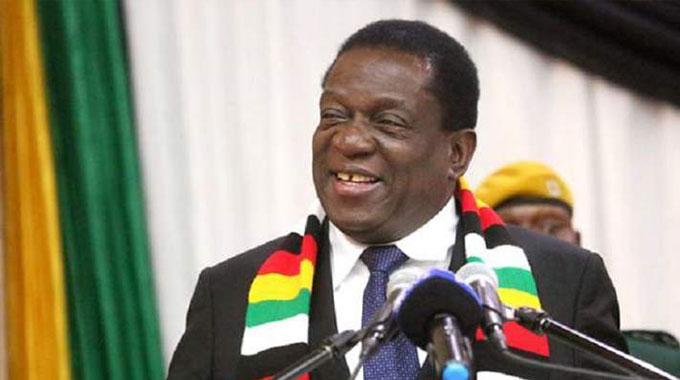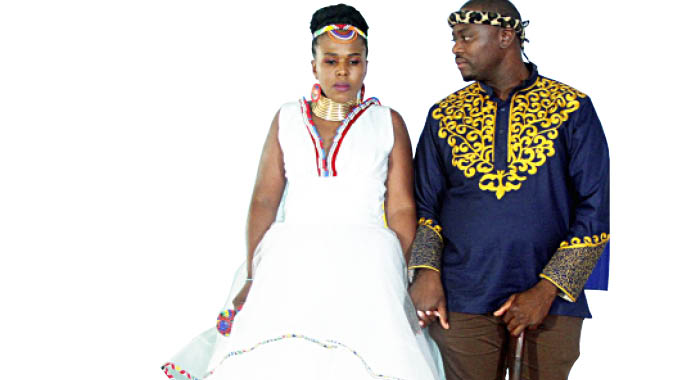EDITORIAL COMMENT: Constitutional Amendment Bill a progressive statute

The stage has been set for an amendment to the 2013 Constitution of Zimbabwe after the Government gazetted the Constitutional Amendment Bill of 2019 on Friday.
This process was widely expected for some time given a number of challenges relating to some provisions of the 2013 document.
Probably first to be identified was the issue of membership of provincial councils under the devolution concept.
Also, since the 2018 elections which saw fewer women winning election into Parliament, politicians and activists felt that the women’s quota, which took effect in 2013 and set to expire in 2023 was unlikely to yield the desired fruit, that of boosting the numbers of women in the legislature. Because of this, politicians, particularly Zanu-PF, thought the tenure of the provision of the women’s quota be extended, a process which demands a constitutional amendment.
A third challenge that the 2013 Constitution posed was a provision that should have come in force in 2023 under which the President and his deputies were supposed to be directly elected. It was widely felt that this provision, if implemented in the 2023 election, was going to create multiple centres of power, complicating the ability of a president to discharge his or her mandate.
If, as expected the Constitutional Amendment Bill of 2019 is passed and secures President Mnangagwa’s signature, MPs would not be part of the provincial councils while mayors will not chair metropolitan councils. This will pave the establishment of both structures which have not been in place since 2013.
The women’s quota will be extended for 10 more years while the running mates clause would be repealed, thus the status quo under which anyone directly elected as president would pick his or her own deputies who would serve at his or her pleasure.
These three — membership to provincial councils, women’s quota and presidential running mates — form part of a range of amendments expected to be effected to the Constitution in the next few months.
It is good that the women’s quota will continue for longer as women still remain on the margins of key political decision-making processes due to poor representation. Yes, the quota system has helped in bringing more of them up, but because of a myriad of factors, women continue to find it tough in the electoral open contests. Of the 210 parliamentary seats contested in 2018, only 26 were won by women. This is clearly an abysmal figure which cannot get desirable numbers of women in the Chamber.
The number of women in Parliament only becomes reasonable when we add the 60 seats that are reserved for them in terms of in Section 124 (b) of the Constitution, which took their tally to 86 female MPs. We have a feeling that the number of women was likely to further drop in 2023 but the prolongation of the quota by two more terms should go a long way in boosting female representation in the House. Hopefully, after the impending extension, the electorate would have grown to realise that a female MP is just as able and as good as a male MP thus would have no problem electing them, not only at primary election stage but also at the national stage. Both figures combined — those elected directly and through proportional representation in terms of the quota – should give rise to a fairer representation of women.
The concept of presidential running mates, as already indicated, tends to cause big problems for jurisdictions that follow it. We don’t think we, as a country, were going to fare any better. Yes, a president would be directly elected just like his or her deputies but in the final analysis, we would effectively end up having elected three presidents. Politics is always a difficult discipline, more difficult because of the power it bestows on elected officials. How would a president give orders to a junior, in this case a vice-president, who, as a matter of fact, would have a clearly defined mandate from the electorate? If the vice-president refuses to take orders, choosing to do his or her own thing counting on his or her own electoral mandate what would the president do? The country risked sleep-walking into an undesirable constitutional challenge if the running mates provision had been left to take effect in 2023.
There are a few more provisions that would be included into the Constitution by the Constitutional Amendment Bill of 2019 which we think are equally progressive.
The youth, just like women, have been calling for greater representation in Parliament. They have tried to compete with their seniors in open contests but, lacking experience and resources to mount formidable challenges, especially during primary elections, have been struggling to make a mark. The ruling party Youth League has been vocal about this, complaining that young cadres tend to be the strongest in campaigning for their party and seniors, but with not much to boast about in the end. If, as expected the Bill is approved, there would be a provision for the introduction of 10 extra seats in the National Assembly reserved for youths — one from each province elected through proportional representation.
The Constitutional Amendment Bill is indeed progressive, thus we don’t think it will face any challenges securing the mandate of the general people through public consultations that would be held soon and the mandate of Parliament across the divide.












Comments